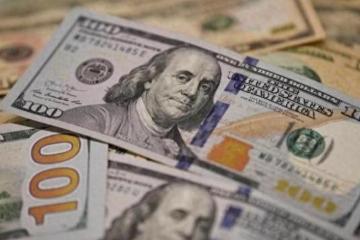Fed Rate Cuts Won't Solve Debt Crisis!
Advertisements
As the Federal Reserve announces its third interest rate cut of the year, the focus has once again shifted to the troubling issue of U.S. debtWith the national debt soaring to an astonishing $36 trillion, this staggering figure not only sends shockwaves through international markets but also significantly erodes confidence in U.STreasury securities among other countriesIn response to the ongoing reduction of U.S. debt holdings by major creditors, including China, Secretary of the Treasury Janet Yellen has issued threats of sanctions against Chinese banksHowever, China's position remains resolute: it will not bear the brunt of America's debt crisis.
The recent interest rate cut by the Federal Reserve, which lowered the benchmark rate by 25 basis points in December, aims to stimulate corporate investment and boost consumer demandThe underlying intention is to spur economic growth by making borrowing cheaper
However, the challenges facing the U.S. economy run much deeper than mere monetary policy adjustmentsWhile the short-term objective of stabilizing the economy is clear, the Federal Reserve's hesitance about future policy changes reflects concerns about potential recession and persistent inflationInitially, markets anticipated as many as four rate cuts in 2025; that figure has now been revised down to just two, amplifying the sense of uncertainty surrounding economic forecasts.
Nevertheless, lowering interest rates does not address the fundamental issue of the debt crisis afflicting the United StatesThe massive fiscal deficit and mounting interest obligations are significant drags on economic growthNotably, reports indicate that by October this year, China, Japan, and the United Kingdom—three of the largest holders of U.S. debt—have collectively sold off $50.9 billion in Treasury securities
- Weak Recovery of Gold Prices
- Tech Stocks Propel Nasdaq to New Heights
- Insights on Investment from Market Environment Changes
- Silver Average Price Expected to Reach $33 Next Year
- Ongoing Premium! These Funds are Actively Warning of Risks
This trend strikes a heavy blow to a U.S. economy that largely operates on a debt-driven model.
As the second largest holder of U.STreasury securities, China has been systematically reducing its portfolio over the past two yearsThe latest figures reveal a $11.9 billion decrease in October alone, culminating in an annual reduction of $56.2 billionThis brings China's holdings of U.S. debt to their lowest level in over 15 years, underscoring a broader strategy to assert its financial independence amidst ongoing geopolitical tensions.
China's actions convey a clear message: amidst continued U.S. pressure, whether through economic sanctions or diplomatic coercion, it refuses to "underwrite" America's debt predicamentChina's reductions in U.S. debt holdings are not merely reactive but serve as a calculated assessment of U.S. economic policies and the state of bilateral relations
Chinese officials have reiterated that cooperation with the U.S. must be founded on principles of equality and mutual benefit, rather than unilateral demands.
In light of China's diminishing investment in U.STreasuries, the U.STreasury Department is becoming increasingly uneasyJanet Yellen has been vocal about the critical role that U.S. debt plays in global financial stability and has employed various strategies to persuade China to replenish its Treasury holdingsHowever, just before her anticipated visit to China, Yellen escalated tensions by threatening sanctions against Chinese banks, positioning this as leverage to compel cooperation.
The roots of Yellen's threats are mired in a sense of desperationWith the debt situation spiraling out of control, the U.S. government is scrambling for new capital to fill its growing budgetary gapsAs a major creditor, China has long served as a crucial financial partner for the U.S. during times of fiscal turmoil
Unfortunately, Yellen's approach of coercive diplomacy has likely aggravated an already delicate situationChina's firm response has been straightforward: it will not acquiesce to U.S. fiscal demands if these are backed by threats and sanctionsThis not only preserves China's financial sovereignty but also stands as a critique of U.S. hegemonic practices.
Moreover, the United States' attempts to wield heavy-handed diplomatic strategies in addressing its debt crisis reveal deeper anxietiesThe government's dual strategy—hoping to mend ties with China while simultaneously implementing punishing measures—creates an elusive dynamic that is unlikely to yield positive outcomesSuch a strategy of alternating between coercion and companionship is not viable in the current geopolitical climate.
As the U.S. grapples with a deepening debt crisis, the question of repayment capability looms large

The growing national debt comes with an escalating interest load, raising alarm bells in international markets about America's ability to meet its fiscal obligationsChina's stance is crystal clear: the reduction of U.S. debt is not a mere reaction to geopolitical tensions but rather a strategic maneuver reflecting a rational assessment of U.S. policies and their implications for global economics.
China remains observant and composed as the U.S. continues to face internal financial crisesThe decisive action taken in October to cut U.S. debt holdings by $11.9 billion further reinforces the stance that genuine cooperation requires sincerity from the U.S., devoid of threats and coercive tacticsThe relationship must evolve into one based on equal footing rather than subservient reciprocity.
Furthermore, the unpredictable nature of the current U.S. administration, known for its unconventional approaches, raises concerns about future Federal Reserve policies and the broader international financial landscape
The possibility of more aggressive economic initiatives could complicate the U.S. debt situation furtherThe current administration's proclivity for substantial rate cuts and increased fiscal stimuli could exacerbate an already burgeoning fiscal deficit, thereby rendering the debt crisis even more challenging to resolve.
For China, this complex dynamic entails navigating the careful balance of fostering domestic growth while simultaneously engaging with external pressuresThe necessity to avoid being ensnared in the intricate web of U.S.-China tensions remains paramountHowever, China must also be prepared to respond flexibly to any intensified economic or trade pressures that may result from Washington’s fiscal maneuvers.
In conclusion, the trajectory of America's debt crisis is laden with uncertaintyRooted in longstanding imbalances in economic policy, the responsibility for this predicament does not rest with China, Europe, or any other nation
Leave A Comment